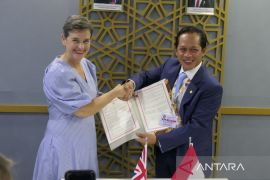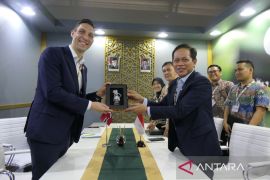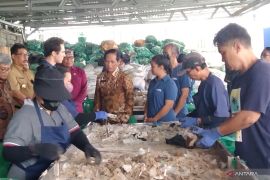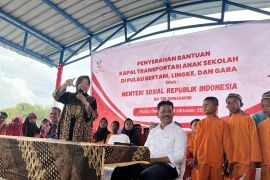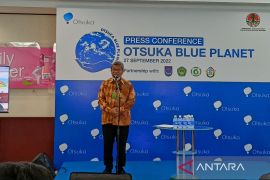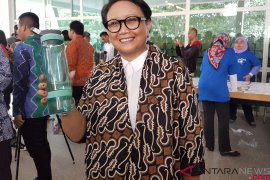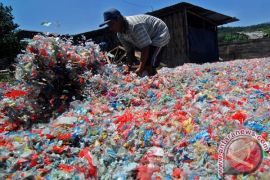"Indonesia is currently implementing policies aimed at combating plastic waste and pollution," said Ary Sudijanto, Head of KLHK's Environmental and Forestry Instrument Standardization Agency, in a statement released on Thursday.
He pointed out that 80 percent of the marine debris polluting the Indonesian seas had resulted from activities conducted on land, with plastic waste accounting for 30 percent of the debris.
Based on data from the National Plan of Action for Marine Debris Handling, Indonesia managed to reduce the amount of marine plastic waste during the 2018-2022 period, from 615,675 tons to 408,885 tons.
Sudijanto also stated that Indonesia's position among the world's largest contributors of plastic waste had fallen from second to fifth, below the Philippines, India, Malaysia, and China.
"Indonesia is currently implementing the National Plan of Action for Marine Debris Handling to achieve the target of reducing marine debris by 70 percent by 2024," he stated.
During the 61st Asian-African Legal Consultative Organization (AALCO) meeting in Bali on October 16, 2023, Indonesia highlighted the importance of determining the definition of plastic pollution, the scope of the life cycle of plastic, and concrete measures for combating plastic waste.
Indonesia also informed the participants that it is prioritizing efforts to strengthen its capacity and capability in managing waste, including applying a circular economy to prevent resources from being wasted.
The Indonesian government has devised the Extended Producer Responsibility (EPR) program to encourage companies to participate in the circular economy.
Related news: Confident of reducing marine plastic waste by 8% per year: ministry
Related news: Financial, infrastucture hurdles impede ASEAN's marine debris handling
Translator: Sugiharto P, Tegar Nurfitra
Editor: Anton Santoso
Copyright © ANTARA 2023

